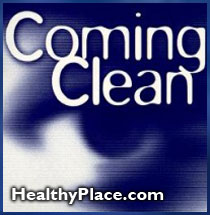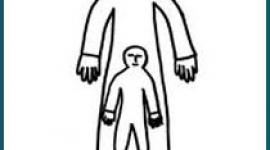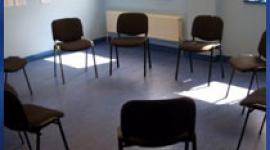Foreword Coming Clean: Overcoming Addiction Without Treatment by Robert Granfield and William Cloud
This book is based on interviews with addicts and alcoholics who recovered without treatment. The authors draw important conclusions from, first, the phenomenon of self-cure, and second, from the methods used by addicts to "come clean."
In: Robert Granfield and William Cloud, Coming Clean: Overcoming Addiction Without Treatment
© Copyright 1999 Stanton Peele. All rights reserved.
 Writing a preface to Coming Clean is a bit like being the best man at a wedding between two people you introduced—Bob Granfield (in the sociology department) and William Cloud (in the social work school) were both teaching courses at the University of Denver on drugs. Both were using my book Diseasing of America. When William learned this, he immediately contacted Bob—and one of the results is the volume that follows (as well as a strong friendship between the two men and their families).
Writing a preface to Coming Clean is a bit like being the best man at a wedding between two people you introduced—Bob Granfield (in the sociology department) and William Cloud (in the social work school) were both teaching courses at the University of Denver on drugs. Both were using my book Diseasing of America. When William learned this, he immediately contacted Bob—and one of the results is the volume that follows (as well as a strong friendship between the two men and their families).
Both Bob and William recognized that, as Diseasing and another of my books, The Truth About Addiction and Recovery, maintain, the disease theory of alcoholism and addiction does more harm than good. This approach is inaccurate and also self-defeating—how many people reckon they can improve their lives when they decide they are stricken with an "incurable" disease?
One proof that the disease theory is inaccurate comes when contemplating the words of such prominent disease theory advocates as Robert Dupont, former director of the National Institute on Drug Abuse. Dupont expressed the conventional disease wisdom when he wrote, "Addiction is not self-curing. Left alone addiction only gets worse, leading to total degradation, to prison, and ultimately to death."
But on what do Dupont and others of his persuasion base their view that addiction is incurable without their help? On the minority of patients who come to such professionals for treatment, the smaller minority who find such treatment helpful, and the finally tiny minority who maintain whatever benefits they acquire from stays in treatment programs or membership in AA and similar groups.
Yet, there is a large mass of people out there who refuse, reject, or fail at treatment. And this group is not helpless. Many of them, more in absolute terms and possibly a higher percentage of them than those who succeed at treatment, do get better. How would we hear about them? Some of the reasons they may have rejected treatment are that they don't like to call attention to themselves, or perhaps they refuse to acknowledge they are addicts, as treatment centers and AA and NA insist they must. And there certainly is no group to promote their success at self-cure.
But where is it written that the only route out of addiction is through attending group sessions and announcing you were born and will die an addict—one whose only salvation is the 12-step group or philosophy, acknowledgment of powerlessness, and submission to a higher power? Was this on the tablet Moses forgot to deliver to the children of Israel?
Forgive my sarcasm, but often the bromides of the 12-step movement are presented with exactly this degree of religious self-assuredness. And we know that nothing about humans is this cut and dried. William and Bob set about proving this in a way that confronts the disease theory at its most vulnerable point—all those individuals who succeeded without accepting its principles. As researchers, they identified self-curing addicts, ones who felt they were better off going it on their own, and who proved it.
Ask anyone you know in AA or NA or a treatment center about the people you will read about in this book. These professionals' reactions will be informative. They will speak of the denial of those who don't enter treatment or a 12-step group. You, in turn, must wonder about their own peculiar brand of denial—one that prevents them from recognizing the most common form of remission from addiction. This path, self-cure, is described in Coming Clean.
Here's a trick you can attempt at home—ask any 12-step counselor or group member what the hardest addiction is to quit. Inevitably, the person will indicate smoking. Then ask the person if he or she or a family member ever smoked and quit. If so, ask how he or she or the family member accomplished this—only one person in 20 will say it was due to therapy or a support group. Muse with this person over how, while believing all addiction requires treatment and group assistance to overcome, this person or those closest to him or her beat the hardest addiction on their own.
And so too is it with heroin, cocaine, and alcohol. While individuals who solve their problems with these substances on their own are often reluctant to come forward, theirs is the standard path to remission, not the one advertised by grateful 12-step program attendees. This startling conclusion—as driven home in this book—should cause us all to revise our notions of drugs, of addiction, of drug policy and treatment, and of our views on what people are capable of. Robert Granfield and William Cloud are to be commended, first for their strength of mind in determining the truths of addiction, and second for forcing Americans to confront their views on these topics. Even I, who played some role in directing the authors towards their recognition of the frequency and importance of natural remission in addiction, was forced to remind myself of the potency of human resolve and self-preservation by the remarkable stories told in Coming Clean.
next: How Does Social Class Affect Drug Abuse?
~ all Stanton Peele articles
~ addictions library articles
~ all addictions articles
APA Reference
Staff, H.
(2008, December 30). Foreword Coming Clean: Overcoming Addiction Without Treatment by Robert Granfield and William Cloud, HealthyPlace. Retrieved
on 2026, February 27 from https://www.healthyplace.com/addictions/articles/foreword-coming-clean-overcoming-addiction-without-treatment-by-robert-granfield-and-william-cloud



